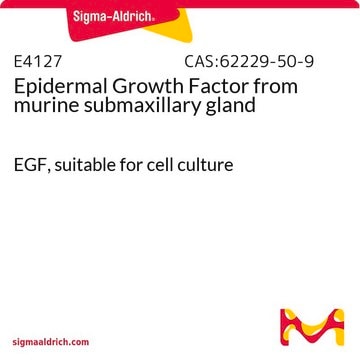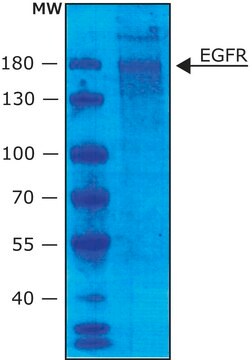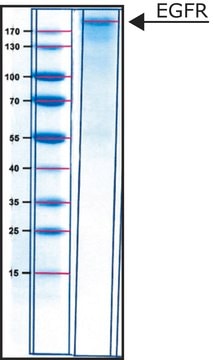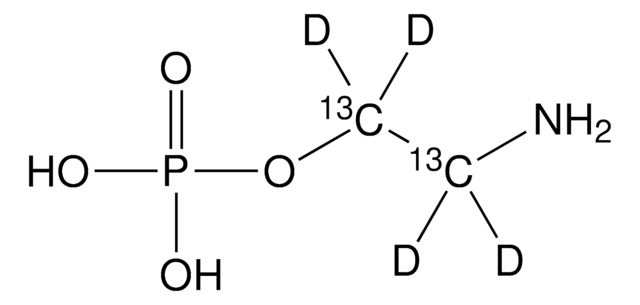SRP0344
EGFR active mouse
recombinant, expressed in baculovirus infected Sf9 cells
Synonym(s):
ERBB, ERRP, Wa5, epidermal growth factor receptor
Sign Into View Organizational & Contract Pricing
All Photos(2)
About This Item
UNSPSC Code:
12352200
NACRES:
NA.32
Recommended Products
biological source
mouse
recombinant
expressed in baculovirus infected Sf9 cells
form
aqueous solution
mol wt
62 kDa
packaging
pkg of 10 μg
NCBI accession no.
UniProt accession no.
shipped in
dry ice
storage temp.
−70°C
Gene Information
mouse ... EGFR(13649)
General description
Mouse EGFR (GenBank Accession No. NM_207655/ NP_997538), amino acids 670-1210 with C-terminal Flag-tag, MW = 62 kDa, expressed in SF9 cells via a Baculovirus expression system.
Application
Useful for the study of enzyme kinetics, screening inhibitors, and selectivity profiling.
Storage Class Code
10 - Combustible liquids
WGK
WGK 3
Flash Point(F)
Not applicable
Flash Point(C)
Not applicable
Certificates of Analysis (COA)
Search for Certificates of Analysis (COA) by entering the products Lot/Batch Number. Lot and Batch Numbers can be found on a product’s label following the words ‘Lot’ or ‘Batch’.
Already Own This Product?
Find documentation for the products that you have recently purchased in the Document Library.
Ariel Talavera et al.
Molecular immunology, 48(12-13), 1578-1585 (2011-05-20)
The EGF receptor is an important target of cancer immunotherapies. The 7A7 monoclonal antibody has been raised against the murine EGFR, but it cross-reacts with the human receptor. The results from experiments using immune-competent mice can therefore, in principle, be
Jeffrey D Kearns et al.
Molecular cancer therapeutics, 14(7), 1625-1636 (2015-04-26)
Although EGFR is a validated therapeutic target across multiple cancer indications, the often modest clinical responses to current anti-EGFR agents suggest the need for improved therapeutics. Here, we demonstrate that signal amplification driven by high-affinity EGFR ligands limits the capacity
Our team of scientists has experience in all areas of research including Life Science, Material Science, Chemical Synthesis, Chromatography, Analytical and many others.
Contact Technical Service







